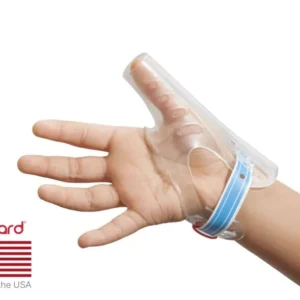Parents often wonder whether nighttime thumb-sucking is something to worry about. In infancy and early toddlerhood, it’s a natural form of comfort. But as permanent teeth begin to come in, the habit can start to influence a child’s bite and oral development. Below, we break down when to intervene—and how to do so with calm, supportive strategies.
Why Children Suck Their Thumb at Night
Natural Instincts
Babies have natural sucking and rooting reflexes, which can make them want to put their thumb in their mouths. This stems from the instinct to suck, which is the mechanism that drives them to breastfeed or bottle-feed. Over time, the sensation of feeding, along with the comfort of feeling safe, full, and protected, tends to create an association between sucking and pleasure. Later on, even though the sucking is non-nutritive, it still gives them a sense of security, not unlike a favorite blanket or stuffed animal.
Calm and Soothing
For most children or babies, sucking their thumb helps them fall asleep, which isn’t necessarily a bad thing. As long as the sucking is not prolonged or vigorous, it won’t cause extensive damage to their teeth until they are older. In fact, if a child hasn’t already stopped sucking their thumb by the time they’re five years old, the American Academy of Pediatrics recommends addressing the thumb-sucking habit.
When Nighttime Thumb Sucking Becomes a Concern
Age and Dental Development
It’s normal for young children to suck their thumbs for comfort as they fall asleep. However, once a child reaches about ages 4–5, the developing teeth and jaws become more sensitive to pressure. Continuing to suck the thumb at night can gradually affect how the teeth line up and how the upper and lower jaws grow.
How Thumb Sucking Affects Teeth
The steady pressure of the thumb can:
- Push the upper front teeth forward
- Prevent the back teeth from touching properly
- Influence how the upper jaw shapes and widens
These changes can contribute to overbites, open bites, or other alignment issues, which may require orthodontic treatment later.
Potential Impact on Speech and Comfort
Because jaw shape and tooth position affect how sounds are formed, ongoing thumb-sucking may also make certain speech sounds harder to produce. Some children may develop a slight lisp or have difficulty with specific consonants. In addition, jaw misalignment can sometimes cause muscle tension or discomfort.
Treating Nighttime Thumb Sucking
Nighttime thumb sucking can be effectively treated with positive reinforcement, gentle guidance, and supportive tools like the TGuard AeroThumb. The goal is not to force the habit to stop all at once, but to help your child feel safe and confident falling asleep without relying on sucking for comfort.
Nighttime Thumb Sucking FAQ
Why does my child suck their thumb at night?
Children suck their thumbs at night for several reasons. First, thumb sucking is instinctual for babies as it stems from their need to suck and feed. For babies and young children, thumb sucking can be soothing and help them fall asleep. The longer a child sucks their thumb, the more strongly the habit becomes entrenched.
Is nighttime thumb sucking harmful?
Nighttime thumb-sucking is not usually harmful for babies and very young children but can affect tooth and jaw alignment, speech development, and social-emotional well-being if it continues past the ages of 4-5 years old.
How do I stop nighttime thumb sucking?
The best way for parents to address their child’s nighttime thumb sucking habit is a combination of positive encouragement, gentle reinforcement, and the right tools. Many parents achieve success breaking habits with behavior charts, rewards, and TGuard’s AeroThumb.
Is it normal for babies to suck their thumbs at night?
Yes, thumb sucking is a normal behavior for infants and babies from the ages of 0-4 years old.
Is it normal for kids to suck their thumbs at night?
Many children continue thumb sucking habits as they grow older, but if the habit persists past the age of 4 years old, intervention is recommended.
What should I do if my child sucks their thumb at night?
The best way to address nighttime thumb sucking is through encouraging language, positive reinforcement, and gentle tools like TGuard’s AeroThumb. If habits persist despite interventions, it can be helpful to consult with a pediatrician or dentist.
Source:
“Aversive Taste Treatment of Finger and Thumb Sucking” from the Official Journal of the American Academy of Pediatrics.





